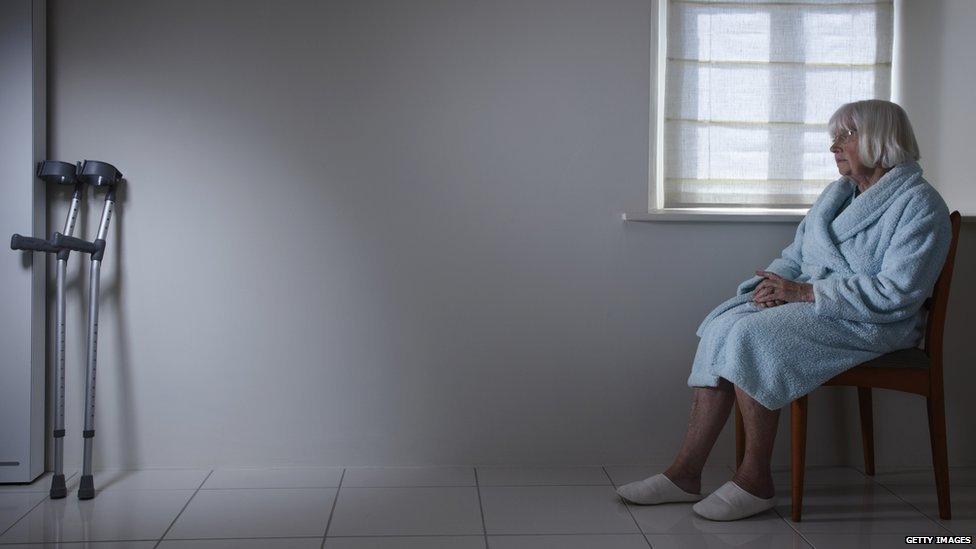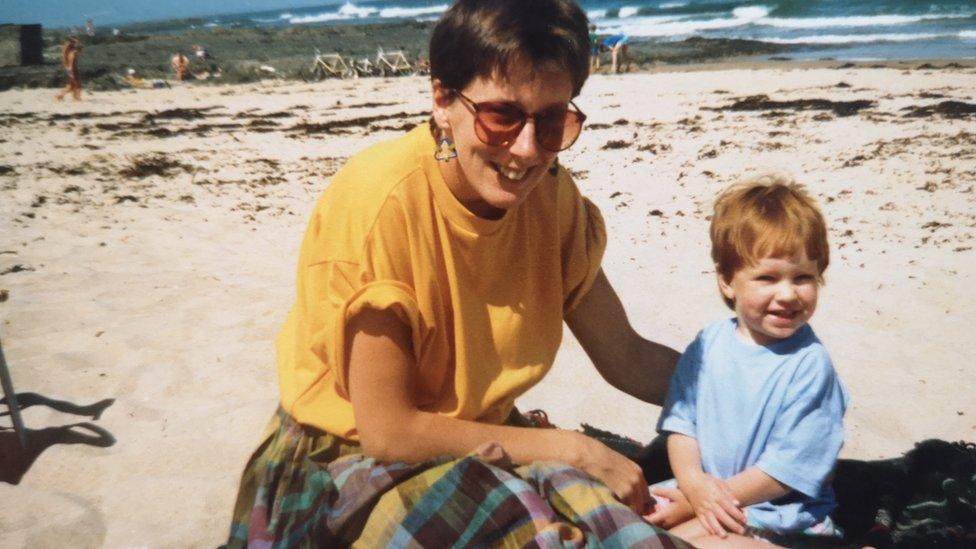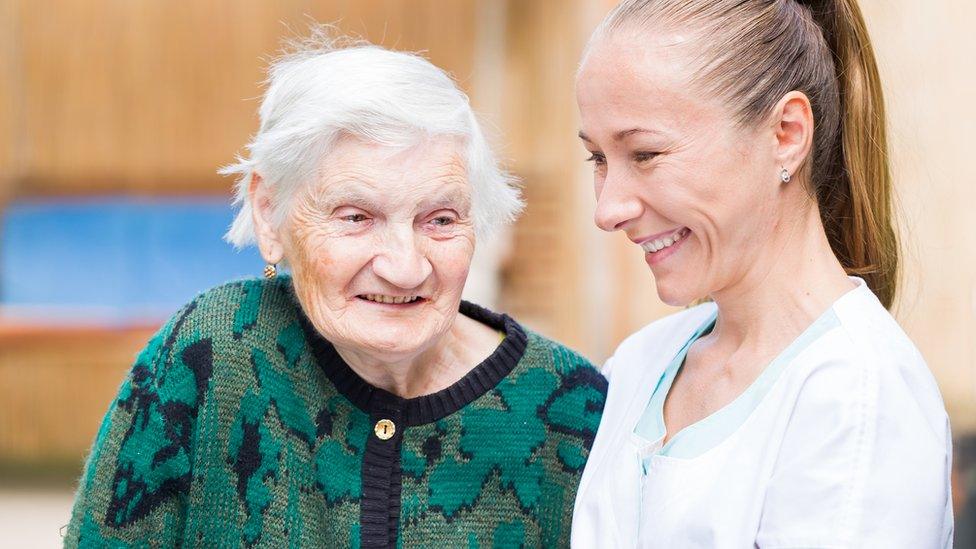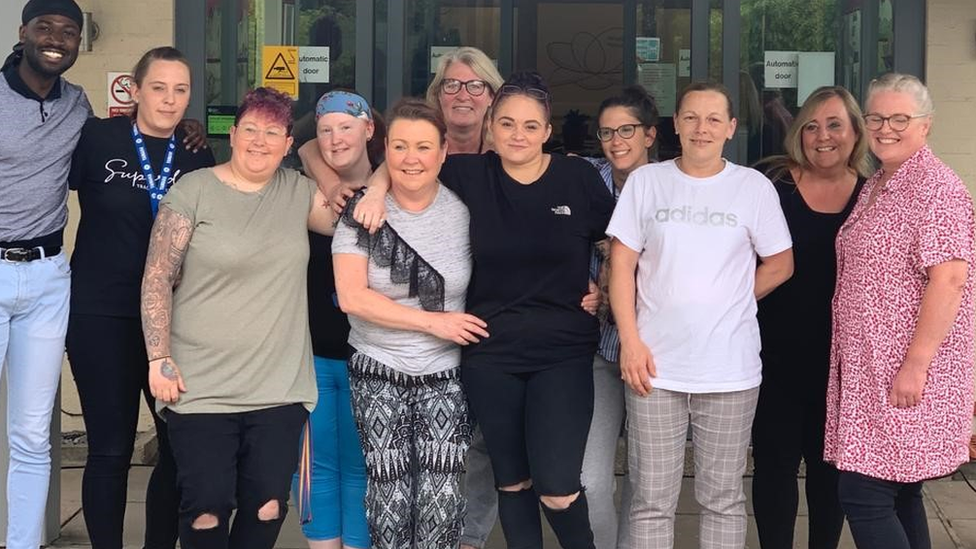Coronavirus: Charity seeks judicial review on care home visit guidance
- Published

Face-to-face visits are vitally important for dementia patients
A dementia charity is seeking a judicial review of the government guidance on care home visits.
John's Campaign says many care homes in England are still refusing regular face-to-face visits, often essential for people with severe dementia.
Dr Angela McIntyre, a retired doctor backing the campaign, has not seen her 92-year-old mother since March.
A Department of Health spokesman said: "We know limiting visits in care homes has been difficult for many families."
He added: "Our first priority is to prevent infections in care homes, and this means that visiting policy should still be restricted with alternatives sought wherever possible.
"Visiting policies should be tailored by the individual care home and take into account local risks in their area."
But John's Campaign, external believes the guidance does not take into account how important visits from family members are for dementia patients and believes it could be in breach of the law.
It cites the case of Dr McIntyre's mother, Joan, who is bed-bound and isolated in her top-floor room.


RISK AT WORK: How exposed is your job?
NEWS FATIGUE: Is it time to move on?
THE R NUMBER: What it means and why it matters
COMPARING COUNTRIES: The pitfalls of doing so
RECOVERY: How long does it take to get better?

The charity said: "Her daughter's visits [were] previously her only comfort. It's now six months since Angela has been allowed to visit Joan despite advising that she would take all infection-control precautions and only enter her room via the fire exit stairs.
"Instead she has been told that she will only be permitted when her mother is dying."
John's Campaign co-founder Julia Jones, whose mother June spent the last two-and-a-half years of her life in a care home, said: "We know we're speaking for thousands who are experiencing extraordinary bewilderment and anguish.
"We can only hope that the government will waste no more of these people's precious time and will give clear direction and the necessary support for their needs and wishes to be respected."

'Grateful to hold mum's hand'

Rosie, pictured as a child with her mother, says she used to have visitors every day
When Rosie was finally allowed to visit her mother in her care home in June, after months of lockdown, she was shocked to see her dementia had worsened.
During the August heatwave, and after a spell of not eating, Rosie's mother had begun refusing liquids - a grim sign which led carers to allow Rosie to spend more time with her mother, as long as she wore PPE.
Being able to hold her mother's hand in her final days "felt really important" and Rosie was "really grateful I could be there".
"But at the same time, 30 minutes and a carer would come and say 'you need to leave now'," she told BBC Radio 4's Sanchia Berg.
While Rosie was grateful to the carers who allowed her longer visits in the last days before her mother's death, Rosie said she felt like the months of lockdown where no visits were allowed had led to her mother's decline.
In comparison with paid carers on varied shifts, Rosie says her family "were the constant in understanding my mum's needs" - and that family members should therefore be "considered equal to paid care staff" when it comes to access to care homes.

John's Campaign has instructed two legal firms who, it says, are "in the process of preparing a pre-action letter, the first stage of a legal challenge" against the government's advice.
In July, other leading charities, including Dementia UK and the Alzheimer's Society, wrote to the health secretary demanding relatives of care home residents with dementia should be treated as key workers.
The letter also noted the "inconsistency" of the visiting guidance across the UK nations.
In Scotland, care homes that are virus-free for 28 days were able to accept visitors from 3 July
In Northern Ireland, care homes that are free from the virus can allow one person to visit at a time, with a second person accommodated "where possible"
In Wales, external, visits have been allowed to care homes and their residents since 1 June, provided they take place outside and two-metre social distancing rules are followed

ARE VIRUSES ALIVE?: Everything you wanted to know about viruses
ANXIETY IN 2020: "The pandemic has been my worst nightmare"

- Published15 August 2020

- Published9 July 2020

- Published1 May 2020
